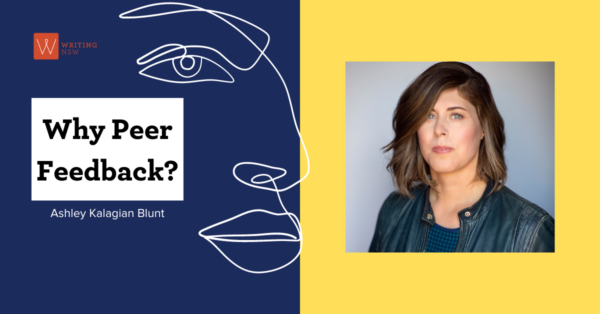
Peer feedback is an essential part of developing your skills as a writer. I’ve been in a Writing NSW writing group since 2015. All of my published works have come out of that group. James McKenzie Watson, winner of the 2021 Penguin Literary Prize and author of Denizen, also developed his skills in that group. And this year, two more group members have signed publication deals, with Pan Mac and Ultimo respectively.
Each of those writers will tell you that both receiving and giving peer feedback was essential to developing their writing skills. In fact, James writes:
“The single biggest change to my writing practice came in 2017 when I joined a Writing NSW writers’ group. Up until then, I’d written five manuscripts which each had been read by friends and family. They always gave incredibly insightful and helpful advice but weren’t actively engaged in the craft of fiction writing themselves.
Joining the writer’s group completely changed my approach. Not only did the people I met show me where I was going right and wrong, but they put what I was writing into a broader context. For the first time, I saw how my work compared and related to what writers at similar career points were doing. In learning how to critique their work, I learnt to critique my own. I gained skills I could never have learned in isolation and friendships I have no doubt will be lifelong.”
Receiving feedback
In our writing, we see our own intentions. This is a problem for both fiction and non-fiction writers, and it gets particularly tricky when we’re writing about events we’ve witnessed or been part of. We remember what it felt like to be in that place at that time – our memory enhances what’s on the page, tricking us into thinking our writing is stronger than it really is.
Plus, we’ve worked really, really hard on that piece of writing. We took it from a blank page all the way to a coherent piece of text that expresses something. That’s a big deal! And we know what a mess it was when we first wrangled it onto the page. We know how much better it is now. Clearly it’s good. Right?
This is what happens to me every month with my group. When I send them my submission, I think, ‘wow, they’re going to be so impressed with this excerpt! It’s really great, I don’t know what they could possibly say about it except how well it’s working!’ And then the group feedback points out all kinds of issues I hadn’t noticed – where the text is confusing, where it’s meandering, where I haven’t persuaded them, where my jokes fall flat. It’s always a revelation. And every time I think, ‘Wow, I’m so glad they pointed all this out to me so I can fix it!’
It can be disheartening to discover our submission isn’t as good as we thought it was, and sometimes it’s worth taking a day to let negative feelings settle (I used to have strong negative reactions to feedback sometimes, thinking, ‘How could they!’ Often when I came back to the feedback after a day or two, I almost always saw it in a different light, and realised it was actually very respectful and helpful).
It’s important to remember too, that feedback is not about us or our worth as an individual, but about the state of the writing on the page. And all writing can improve with revision. Tennessee Williams used to revise his short stories after they were published!
Once we get over the shock of realising the piece we worked so hard on isn’t yet achieving its full potential, we can see feedback for the gift it is. Fellow writers provide critical insight into the experience of reading the piece, and give us a starting place for improvement.
Giving feedback
If we want quality feedback from others, it’s only fair that we take the time to give quality feedback in turn. You might think that’s all there is to it – ‘I’m giving this feedback for parity’s sake, and trying to do it as quick as I can so I can get back to my own work.’
But actually giving feedback is where you can really learn what makes good writing. It’s an opportunity to analyse work that isn’t yours, work that’s in development. You can explore what’s really working – what grabs you, excites you, intrigues you, and why, how is the writer doing that? – and what’s not working, what’s falling flat, or is confusing, or awkward to follow.
And by taking the time to really think about this, you’ll start to absorb these lessons into your own writing. You’ll more quickly identify where switching from summary into scene would make your point more powerful, when you’re telling too much, when your research is overwhelming your narrative. Your writing will improve because of the time you’ve taken to think about others’ works-in-progress.
Although giving feedback is generally the last aspect of a given lesson, it’s not the least important by far.
And if you’re concerned you shouldn’t be giving peer feedback because you’ve never done it before, or you haven’t studied writing and won’t know what to say, don’t worry. Your feedback is about your experience as a reader – and if you’re in a lesson-based course, your feedback is an opportunity to apply the techniques and tips you’re learning to your peers’ submissions. This in turn can help you develop better insight into how to use these techniques more effectively in your own writing. So the feedback process is another way of reinforcing our learning. It’s win-win-win.
This article was written by Ashley Kalagian Blunt.
Unsure about where to start or what questions to ask when you’re evaluating a work? Read our resource page How to write peer feedback.
Want to use your new found knowledge in the wild? Join a writing group.
